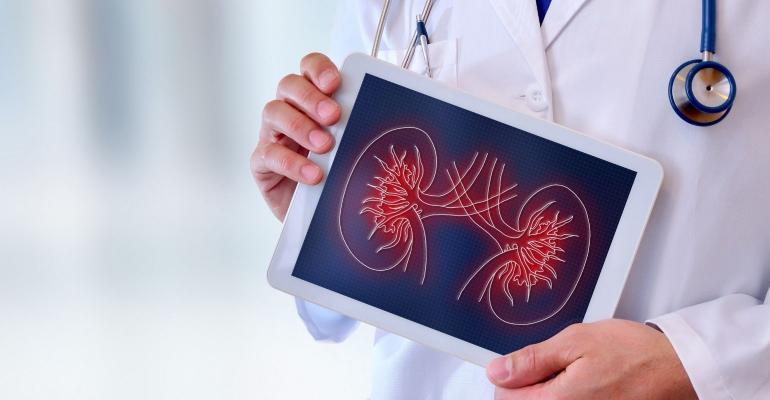Chronic kidney disease (CKD) is one of the leading causes of death worldwide and is projected to be among the top five causes of death by 2040.
Sadly, few people are even aware of this silent disease, where patients can lose up to 90% of kidney function before experiencing any symptoms. When diagnosed late or left untreated, CKD can progress to kidney failure, leading to highly invasive dialysis or kidney transplants are needed with an enormous impact on patients’ quality of life.
Despite the huge global burden of chronic kidney disease on patients and health systems, the disease is unfortunately rarely prioritised by decision-makers and few countries have a national strategy for improving CKD care – including fewer than 20% of countries in the Middle East.
In the Middle East, the burden of CKD and related kidney failure remains high and is growing, currently affecting 5% to 10% of the population. AstraZeneca has chosen World Kidney Day to help drive global action against the rising burden of CKD by hosting the Chronic Kidney Disease Summit at Expo 2020 in Dubai.
As a company invested in saving lives from renal diseases and in researching the chronic kidney disease treatments of the future, it felt right to put this silent disease high up the agenda on this unique global stage. At the same time, the Summit serves as a convening point on CKD strategy in the Middle East, with delegates from the Gulf Cooperation Council countries, Egypt, Lebanon, Jordan and Iraq coming together to explore regional solutions.
As we host discussions, we believe there are three critical actions that we can take as a global community to address the burden of chronic kidney disease and achieve real change for patients.
First, and perhaps most importantly given the silent nature of the disease, we need to find patients affected. This means improving data collection and surveillance and putting in place appropriate screening to detect the disease sooner. The UAE happens to host one of the oldest kidney registries in the world, established in 1980. But among Arab countries, only Oman has a registry dedicated to chronic kidney disease. This leaves a gap in high-quality, regionalised data that demonstrates the true socio-economic and environmental impact of the disease.
Secondly, when we find patients with chronic kidney disease, we need to ensure early and equitable access to treatment. We know that when patients are treated earlier, their quality of life improves significantly and costs associated with end-stage kidney failure, including dialysis, can be avoided. Such actions can also help decrease death rates associated with CKD, which are highest in Jordan, Saudi Arabia and Bahrain within the Middle East region.
And finally, we need to turn dialogue and exchange of insight on chronic kidney disease into tangible partnerships among stakeholders across the CKD pathway.
Examples of our global partnerships include a diagnostic platform we are developing with Renalytix AI, which uses artificial intelligence to improve kidney disease prognosis, clinical care management, provider and patient education, and patient stratification for clinical trials.
Additionally, our global campaign “The Pressure is On” is helping physicians test for kidney function during routine check-ups and has seen 10 million patients screened for CKD globally in 2021. Between cutting-edge scientific research and these innovative partnerships, there’s so much already happening to help transform the standard of care for patients with chronic kidney disease but to truly address this silent crisis, finding patients is key.
Pelin Incesu is the Area Vice President, Middle East and Africa at AstraZeneca.

